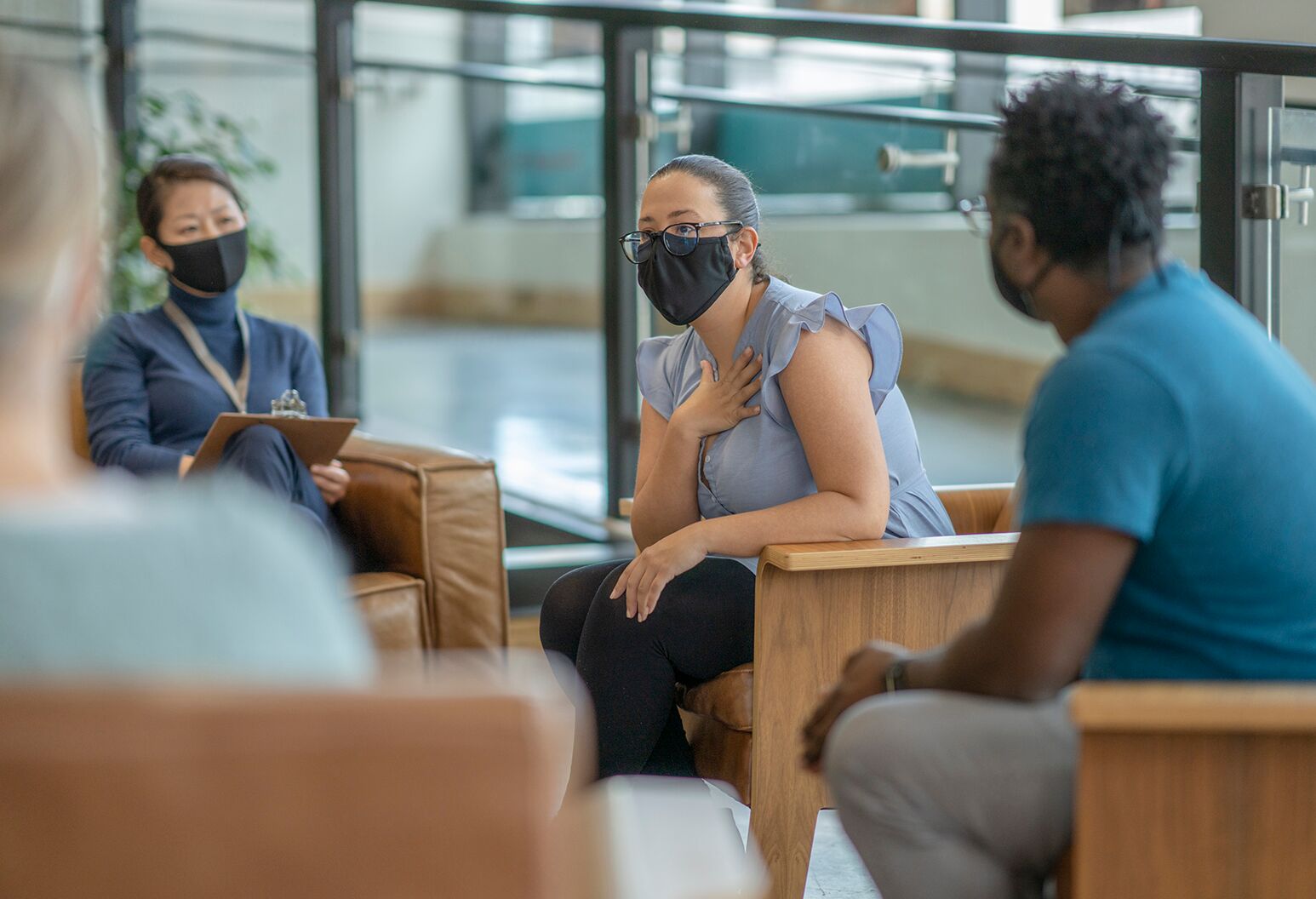Our representatives are available to schedule your appointment Monday through Friday from 9am to 5pm.
For a Northwell ambulance, call
(833) 259-2367.

Many workplaces have policies that penalize people struggling with substance use. But finding ways to get them into treatment can be a win-win for employers and their employees—and this process is made even easier when businesses tap into an approach known as SBIRT: Screening, brief intervention, and referral to treatment
The national cost of treating substance use disorders is more than $400 billion per year. The expense spills over to businesses as well: Workers struggling with substance use disorders miss “nearly 50 percent more days than their peers, averaging 14.8 days a year of unscheduled leave,” according to research published in the Journal of Occupational and Environmental Education.
Additionally, employee morale can fall while turnover—and its associated costs—rises.
The COVID-19 pandemic has only compounded substance use issues: The nation saw a 54 percent surge in national alcohol sales during the first week of the pandemic, and subsequent reports indicate increases in alcohol intake, particularly among women. Drug overdose deaths are up, too. America lost more than 180,000 lives in 2020 due to alcohol- and drug-related deaths.
When employers address addiction by shifting their response from punitive to supportive, they can build an environment where struggling employees can find treatment. Employer-initiated treatment can lead to savings of about $8,500 per recovering employee; research suggests workplace interventions can be more successful than programs initiated by friends or family.
Business leaders can advocate for approaches like SBIRT. This early intervention approach identifies and supports people with substance use disorders or those at risk of developing them.
“Universal SBIRT can effectively reduce the severity of substance use disorders and improve health outcomes for individuals. It may also decrease the risks of injury and negative life consequences, like DUIs or job loss,” according to the Washington State Health Care Authority.
In doing so, employers can reframe addiction, accepting it as a “chronic, treatable disease from which individuals can recover and continue to lead healthy lives,” according to the National Institute on Drug Abuse (NIDA).
Stigma, NIDA explains, impedes recovery; keeps individuals with substance use disorder from seeking treatment; and it promotes stereotyping that leads others to feel pity, fear, anger and a desire to distance themselves from people with addictions.
My own health system is facing these truths.
A task force has pushed for policy changes, employee education, strengthening and expansion of resources, and a pledge to promote conversation about humanizing and approaching substance use as a public health problem. The employee benefits team offered a $390 paycheck credit for a discount on health insurance premiums to 35,000 benefits-eligible employees upon completion of the 12-minute pledge exercise—that’s a $13.5 million potential investment.
The investment is paying off, and it can for other employers, too.
Replacing punitive approaches with the words and actions of hope—prevention, awareness, support, community and recovery—encourages workplace loyalty and trust. It strengthens organizations, saves money and, most important, paves the way for a humanistic approach to a chronic, treatable medical condition.
Sandeep Kapoor, MD, MS-HPPL is assistant vice president, Emergency Medicine Addiction Services and director, Screening, Brief Intervention and Referral to Treatment (SBIRT) for Northwell Health. He is also assistant professor of Medicine, Emergency Medicine, and Science Education at the Zucker School of Medicine at Hofstra/Northwell.
A father shares his experience becoming an advocate for his son, who overcame an alcohol use disorder. He joins Sandeep Kapoor, MD, to discuss addiction and shattering stigma on the 20-Minute Health Talk podcast.
Our representatives are available to schedule your appointment Monday through Friday from 9am to 5pm.
For a Northwell ambulance, call
(833) 259-2367.